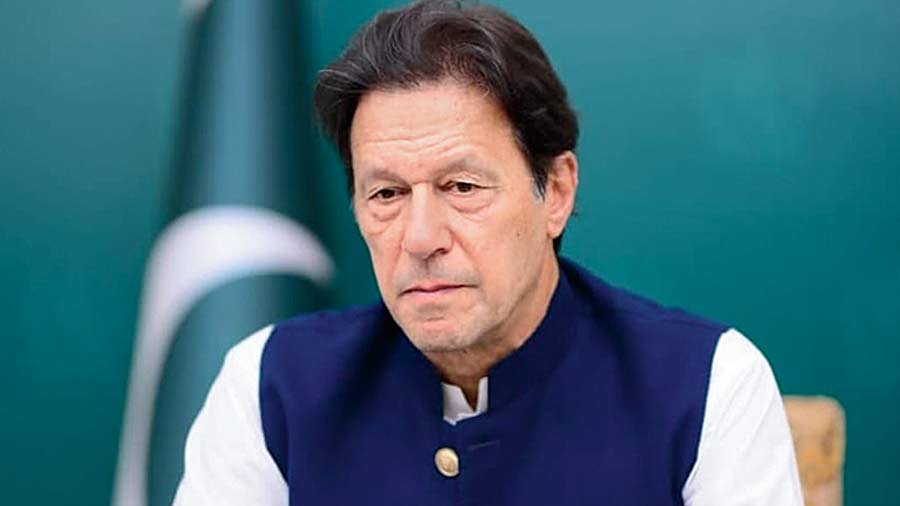The political and constitutional crises continue in Pakistan as a clash between the Supreme Court and the Pakistan Democratic Movement government has escalated to such an extent that the former had taken up petitions challenging a law passed by Parliament when it had not even become a law. An eight-member bench of the Supreme Court issued an ‘anticipatory injunction’ barring the law from taking effect until further notice. Many legal experts were surprised at this move by the apex court and called it unprecedented.
The Supreme Court (practice and procedure) bill, 2023 was passed by the National Assembly and the Senate last month and a joint sitting of Parliament earlier this month but it did not become a law till recently because the president did not sign the bill twice. Many from the legal fraternity say that even if the timing of the bill was not right — it came at a time when the Chief Justice was exercising his suo motu powers in the elections delay case — the bill, now a law, was a step in the right direction as it curtailed the CJ’s powers of suo motu and of forming benches. The legal fraternity has been demanding that the CJ’s discretionary, almost dictatorial, powers be curtailed.
It all started with Iftikhar Chaudhry who was restored after the success of the lawyers’ movement. The way he exercised his suo motu powers and his targeting of the Pakistan Peoples Party government rung alarm bells for many. They warned that if his powers went unchecked, every CJ would follow in his footsteps. Barring a couple of CJs since Justice Chaudhry, most have not restrained themselves from using their unfettered powers. The politicisation of the judiciary from Chaudhry’s time has now come full circle.
The PPP was targeted by Chaudhry. The Pakistan Muslim League (Nawaz) was targeted by the former CJ, Saqib Nisar, during his tenure. It is now an open secret, through leaks from a former army chief, that he helped the Establishment facilitate ‘Project Imran’. And, now, we have a superior judiciary that has visible cracks within its ranks while there is an ongoing tussle between the executive and the judiciary. Many experts are of the opinion that one party — Imran Khan’s Pakistan Tehreek-e-Insaf — is being favoured unduly by the CJ and his ‘usual’ bench while the government, a coalition of more than a dozen parties, is not being heard at all. The ‘bias’ that has crept in has led to more questions than answers. Recently, an alleged audio was leaked featuring a conversation between the mother-in-law of the CJ, Umar Ata Bandial, and the wife of the PTI lawyer, Khawaja Tariq Rahim, as evidence of the tilt the CJ’s family has towards the PTI. Many have condemned this audio leak of a conversation between two private citizens. But some wonder whether judges of the top courts are being influenced by their families. Some experts have argued that this alleged audio leak was a message to Bandial that nothing is off the table now.
Many legal experts have criticised Bandial for preferring the same names when it comes to bench formation in the apex court. Some even go as far as to joke that when a bench is announced, they can predict exactly what the verdict will be. Strangely, Justice Qazi Faez Isa, who is the second most senior judge in the Supreme Court, has not been part of any important constitutional or political case recently. The way he has been ostracised ever since he got on the wrong side of the previous Establishment after delivering the Faizabad dharna judgment a few years ago is quite telling. There are concerns that the superior judiciary is not willing to sit together and resolve the differences even though the top court has been asking politicians to sit together and reach a consensus over elections.
For now, there seems to be no thaw in the battle between the judiciary and the executive. But for many, especially journalists, the Eid holidays have been a reprieve of sorts from the continuous courtroom drama.
Mehmal Sarfraz is a journalist based in Lahore; mehmal.s@gmail.com











